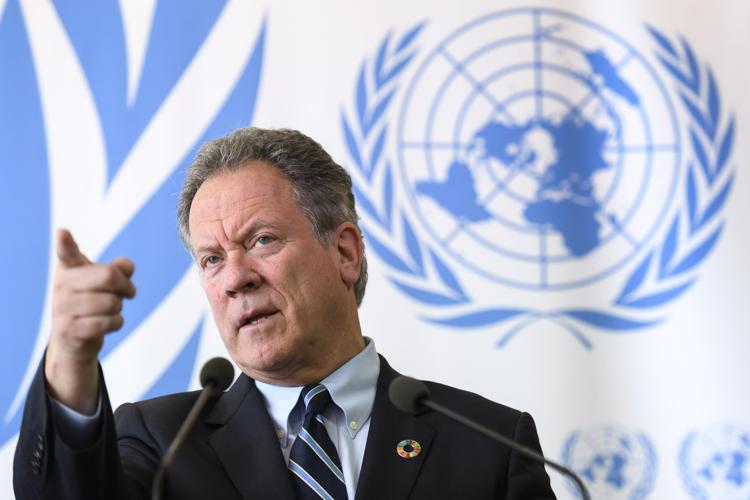

Sustainable sources of income and having enough to eat help vulnerable rural populations to stay home and not be forced to migrate, United Nations World Food Programme executive director David Beasley said on Monday following a visit to Central America.
“Sustainable livelihoods, strengthened resilience and self-reliant communities are WFP’s priorities in Central America. We want people to have hope in their future, faith in their lands and opportunities at home,” said Beasley.
“When you don’t have food to feed your children, when you don’t have money to buy medicines you are pushed into desperation."
“People don’t want to leave their homes, they are being forced to," Beasley underlined.
During his visit, Beasley met families affected by climate change coupled with job losses and rising inequality, a fallout of COVID-19, Rome-based WFP said in a statement.
Hunger in the region has quadrupled over the past two years, with eight million people now hungry, according to WFP.
Among those not getting enough to eat, 1.7 million people are in the ‘Emergency’ category meaning they require urgent food assistance.
The rise in hunger has coincided with a doubling in the number of people planning to migrate. A WFP assessment conducted in January 2021 saw at least 15 percent of people surveyed wanting to migrate as compared to only eight percent in 2018.
“You are hearing about all the migration. People have lost their jobs. They have lost their hope. We urgently need to help people with food as well as long-term development that requires more than a piecemeal approach,” said Beasley.
It costs WFP between one and two dollars per person, per week to support people in Central America through its resilience projects - compared with almost 4,000 dollars per person per week it costs the US to keep migrant teenagers and children at the border, the statement noted.
WFP’s resilience building work was the focus of Beasley’s visit to Honduras and Guatemala, where WFP provides technical and financial support to local communities to help them adapt their production to climate change, generate more income, improve their farming methods, diversify their crops and their livelihoods.
Multi-year programmes with smallholder farmers in Central America have helped communities harvest water, build irrigation systems, greenhouses and nurseries, the statement said. Farmers aim to harvest a variety of crops year-round. Examples of alternatives include poultry farms, fisheries, honey and hammock production.
WFP is also providing food and cash to families hit by Hurricanes Eta and Iota, which upended lives throughout Central America last November and his also helping thousands of vulnerable families dealing with job losses in urban and rural areas resulting from the COVID-19 pandemic.
Beasley’s mission also took in a trip to Haiti where he saw WFP’s work with rural communities, rehabilitating salt basins and boosting productivity. The WFP chief also viewed activities to ready Haitians for the upcoming hurricane season in June.